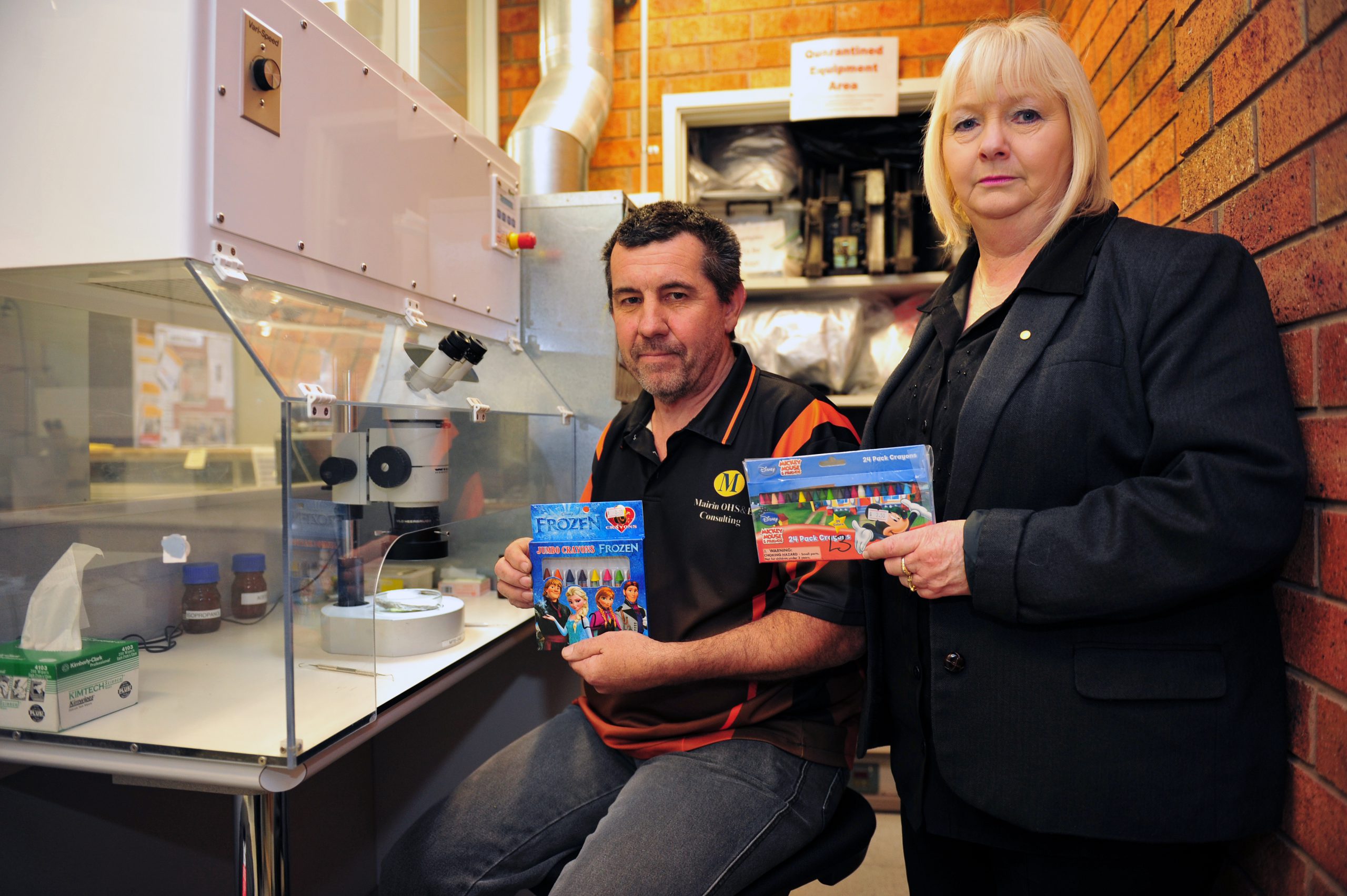The consumer watchdog has not conducted any further testing for asbestos in crayons since revealing traces had been found in some products more than 10 months ago.
In an 11 September alert on its website, which listed six different packets of crayons found to contain traces of asbestos, the Australian Competition and Consumer Commission said it would continue to test products that could contain asbestos. Responding to recent questions from The Express, an ACCC spokesperson said the regulator had not received any reports or identified any particular at-risk consumer products to warrant further testing.
“It will conduct testing if there is credible intelligence about particular consumer products,” the spokesperson said.
Asbestos Council of Victoria chief executive Vicki Hamilton said the ACCC was not doing enough.
“They shouldn’t be relying on people like me or the unions to identify products that have asbestos in them,” Ms Hamilton said.
“They are government agencies. They should be able to do their own investigation.”
The Gippsland-based Asbestos Council of Victoria raised concerns in September following independent testing of two packets of crayons made in China and bought off the shelf in the Latrobe Valley, which found an elemental composition indicative of types of asbestos.
Shortly after, the ACCC issued the alert, listing these crayons alongside four other packets in which its own tests found traces of asbestos.
All had been marketed towards children.
Authorities requested suppliers of those goods to stop providing them and offer consumers a refund or exchange.
The ACCC spokesperson said four suppliers were asked to remove crayons from their shelves based on the results of testing and other suppliers voluntarily removed crayons.
The consumer alert said the crayons posed a low risk to humans and the asbestos fibres would not be released during normal use or as a result of ingestion because the melting point of crayon wax was well above body temperature.
At the time of the alert, Australian Border Force moved to detain imports of crayons from China that may contain asbestos fibres.
A spokesperson from the Department of Immigration and Border Protection last week said the department and its operational arm, the Australian Border Force, were committed to stopping asbestos-contaminated products before they entered Australia.
“We target products from high risk countries and high risk suppliers,” the spokesperson said.
“The ABF conducts risk assessments on all cargo imported to Australia, with all cargo identified as high-risk then being physically examined.
“ABF officers target high risk cargo using profiles and alerts that have been developed from historical detection data, as well as referrals from industry, other agencies and statutory authorities involved in asbestos management.”
The spokesperson said importers needed to be diligent in understanding the supply chain and production processes leading to the manufacture of the goods that they intended to import.
“Where goods are identified that may potentially be contaminated with asbestos, these are held until importers can provide evidence the goods are tested and no asbestos contamination is present.
“If importers seek to import a product containing asbestos, they risk losing their goods, losing money, and possibly gaining a criminal conviction.”
Ms Hamilton said authorities needed to treat the threat of asbestos imports as they would illicit drugs.
“Most of the Australian people think this is all done and dusted, but it’s not,” Ms Hamilton said.
“It’s a clear and present threat and if the Australian government doesn’t get fair dinkum and start treating it like drugs coming into this country it will be a problem for decades.”












